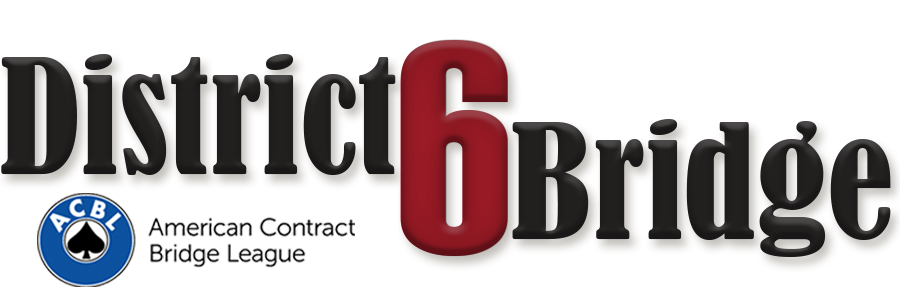You have 432KJ3210981098. You’re on lead against 4. Hearts have not been bid and partner has passed throughout the auction. Against what types of auctions would you lead a heart? Against what types of auctions would you lead an unbid minor? I probably should have made the minor suits xxx rather than the attractive 1098 to make a minor-suit lead less attractive, and I probably should have made the trumps J32, which makes a trump lead less attractive.
I have found that in most game contracts, declarer can eventually find enough tricks to make his contract if you remain passive. The object is to get the setting tricks before declarer fulfills his contract. With this hand, the easiest way to set up your tricks first is to find partner with a heart honor. Therefore I would lead a heart. I would lead a heart even if my RHO opened 2NT.
Point No. 1 – Some experts agree with me 100% and would always lead a heart.
Bobby Wolff: There probably is an exception somewhere, but trying to think of the exception I come up empty. LEAD A HEART. No second choice and no excuses accepted.
Point No. 2 – Some experts would lead a heart most of the time.
Bob Hamman: This does not look like a clear-cut situation. My style is to lead from strength.
Eddie Kantar: Notwithstanding the hand given, some situations in which I would lead a heart against a 4 contract are:
- If hearts was the only unbid suit, I might lead one, unless I had the ace without the king.
- If there were two unbid suits, including hearts, and dummy appears to have sidesuit length, I might lead a heart if I was stronger in hearts than I was in the other unbid suit (but not if I had the ace of hearts).
- I would lead a heart from shortness, particularly if I had a quick trump entry.
- If I had four trumps headed by a high honor and hearts was my longest unbid side suit, I might lead a heart to start a forcing defense.
- If I had a perfect sequence in hearts, I might lead it regardless.
Zeke Jabbour: I often say that if we always knew what to lead, we’d win most of the tournaments in which we play. (Don’t we have some pragmatic evidence of that?) There are very few auctions (that failed to include the heart suit) that would not induce a heart lead from this holding–possibly even against a slam. When the auction and my hand justify it, I am partial to attacking leads. The theory is that our side should establish our winners before the opponent establishes his side suits for discards. My hand is so bereft of high cards that partner is certain to have values. Partner can have at least two (or even three) cards that might be helpful–the Ace, the Queen, or possibly even the ten. A heart lead will often–but not always–lose when the opponents own both the Ace and the Queen. The attraction of the minor suit holdings revolves around the quality of the spots. If one of the minors is the only unbid suit, then I would lead it and hope that those pushers have value.
Eddie Kantar: Notwithstanding the hand given, some situations in which I would lead a heart against a 4 contract are:
Point No. 3 – Some experts lead a heart if the bidding indicates a long side suit, but would otherwise make a safe lead. Sometimes you don’t know whether there is a long side suit out. How many clubs does the auction 1-1-2-4 show? The club bidder could be 4333 or 4135.
Mike Passell: I would lead a heart if hearts were the unbid suit in an auction such as 1-1-2-2-3-4. I would also lead a heart if an opponent had bid and rebid a minor such as 1-1-2-3-4. I would also lead a heart in the following types of auctions: 2NT-3-3-4-4 or 1NT-2-2-3, then reaching 4. Other auctions I would go passive on lead since I wouldn’t feel the need to cash early and hope for the best. This is especially true if the opponents have a relatively slow auction where partner is marked with assorted values.
Jill Meyers: I would lead a heart in a situation where opener has made a game try in a minor or possibly in a 1-2- 4 auction. I would not lead a heart where LHO made a limit raise. I would probably lead a trump otherwise–I don’t think I would lead a minor.
Point No. 4 – Is the 2-bidder 3334 or is he 4225 where the clubs can be set up? Can’t the 2-bidder and the limit raise bidder have a long minor?
Barry Rigal: Listen to the auction and decide whether action or passivity is called for and how likely partner is to have a finessable trump holding. Do the cards lie well or badly for them? Did partner have a chance for a lead directing double? Listen to whether the opponents have stretched to reach game or bid there on power, e.g. against an auction that goes 1NT-2-2-4, I might lead a heart; 1NT-2-2-3-4 might be a trump lead. If partner had passed in first seat I might need to get active — cash the hearts before they go away.
Point No. 5 – But can’t the 2-bidder or the 1NT-bidder have a five-card suit?
Henry Bethe: I would lead a heart against any auction that shows a minor suit source of tricks, e.g. 1- 2-2-4 or 1-1-1-3-4. Obviously, also against any auction that suggests heart weakness: 1-2-3-3-4-4 for example. I would lead a minor when RHO is known to be strong: 1-2-2NT-4. I would lead a trump on many auctions where little is known and they both have strength, such as: 1-1-2-4.
Point No. 6 – Do you ever know what the opponents have after an auction? Can’t the 2-bidder have only three clubs after 1-2?
Marty Bergen: I would lead a heart if the auction suggested that I needed to be very aggressive, such as a long, strong minor in dummy. I would lead a minor against most other auctions.
Ron Smith: I think a heart is right if they show a source of tricks and you need to get yours now. If they show reasonably balanced hands and scattered strength I go neutral.
Kerry Sanborn: When LHO has responded two-of-a-minor to 1 and has been raised, I would lead a heart. When RHO preempts in spades and has been raised to game, I would lead a heart. When the auction goes: 1-2-4, 1-1-1-4 or 1-4 I would attack with a heart. I would lead a minor when neither side has shown much distribution, or when leading into a notrump type hand. I probably would never lead hearts when either opponent has bid them naturally, except when LHO has responded 1 to one-of-a-minor and then raised spades simply.
Mel Colchamiro: I would ALWAYS lead a heart after a 2/1 auction such as 1-2-2-4 or the like, and most of the time on a 1-2-4 auction. I would lead passively on a 1-1-1NT- new-minor-forcing auction–declarer might easily have four hearts. When the opponents arrive at a 4 contract without bidding one of the minor suits naturally along the way, I would lead the unbid minor. Assuming hearts have not been bid, I would lead the unbid minor ALWAYS against an auction that started with a strong 1NT opening bid, a 2NT opening bid, or a strong 2 opener followed by 2-2NT when the notrump bidder is on my right. Against a weak 1NT-Stayman auction I would guess, but I might lead a heart if the 1NT opener by agreement could have a five-card minor, for fear of discards on declarer’s five-bagger.
Larry Cohen: If the opponents seem to have a source of tricks, then I’d attack with hearts. If they seem on shaky ground with no running suit, I’d go passive with a minor (unless a trump lead seemed called for). This is a basic textbook answer — maybe I am missing something.
David Bird: When dummy has indicated a long minor: 1-2-2-4, you need to set up or cash your available tricks in hearts/clubs before the diamonds are established. A heart lead might well be best after such an auction, but with 10-9-8 in the other unbid suit, this is almost as attractive – particularly as you have only three clubs. After an auction such as 1-2-4, I would lead a minor, but only because of the 10-9-8 sequences. If the minors were such as 10-x-x, I would lead a heart.
Kit Woolsey: Assuming IMPs (matchpoints might be another story), I would lead a heart if the opponents had made a slam try. I would lead a heart (probably) if it looked like there was a long minor suit in dummy. Otherwise, I would definitely not lead a heart. I might be leading a trump on some auctions.
Conclusion: If you knew for sure whether or not an opponent’s auction showed a long suit, you could lead a heart when he showed a long suit and lead passively otherwise, but there are lots of auctions where long suits are never even bid. How many diamonds does the diamond bidder show when the auction goes 1-2-2-3-4? Take the auction 2NT-3-3-3NT. The 3-bidder, with only six HCPs, could be 5215 or could be 5332. The 2NT-opener could be 3325 or could be 3343. Therefore, I always lead a heart from KJ32. I get an extra trick at matchpoints or beat the contract at IMPs at least 50% of the time. If you lead a heart only 50% of the time, you could pick the 50% where a heart lead is bad and beat the contract or get an extra trick at matchpoints zero times. Isn’t it better to be consistent? One less thing to worry about.

